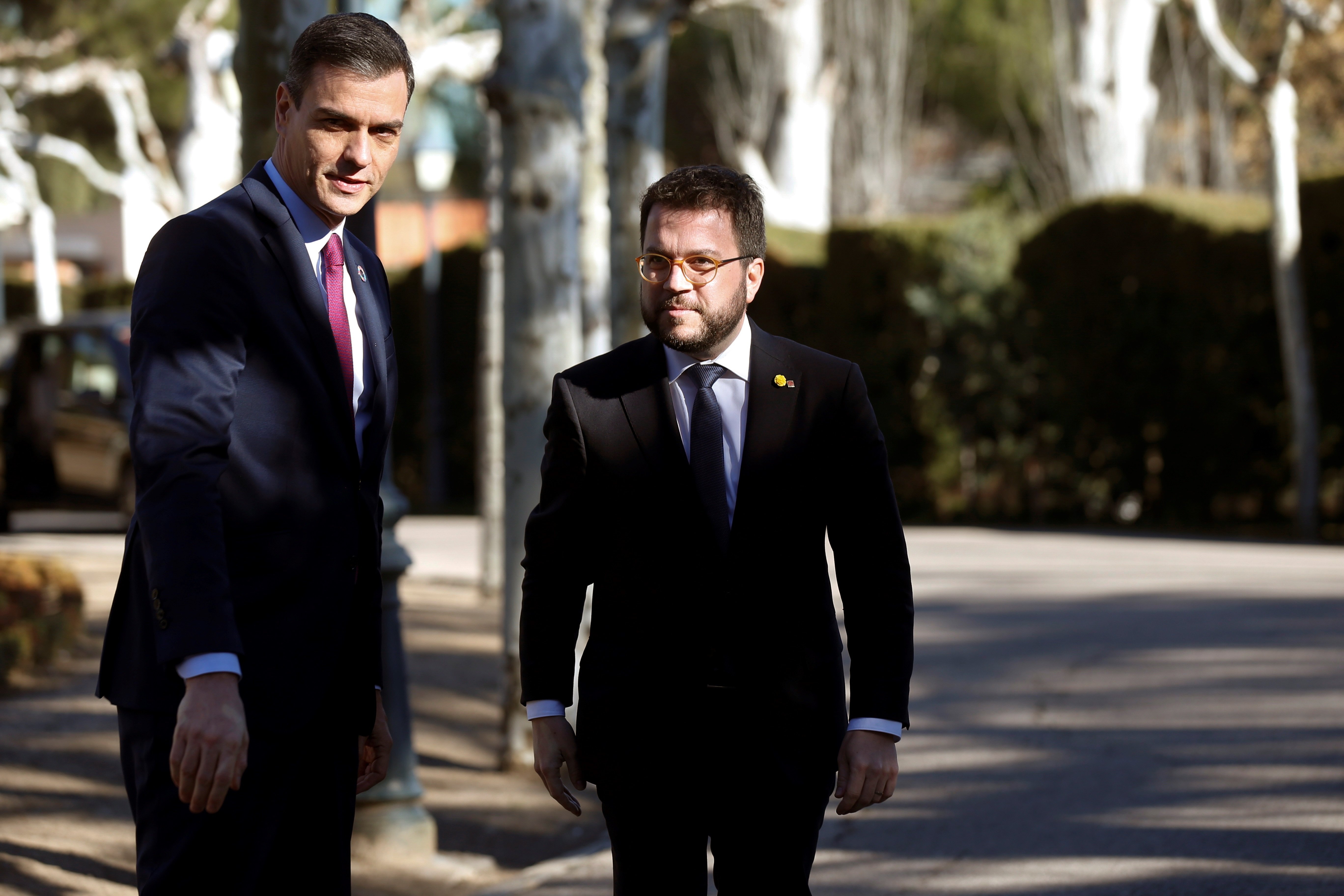The pro-independence Catalan Republican Left party (ERC) are, at Spanish level, a key supporter of the government led by Pedro Sánchez's Spanish Socialists (PSOE). And yet today, ERC held back little in its criticism of the part played by the Socialists in the repression of Catalonia following the independence referendum in October 2017. The PSOE were "co-responsible" for the unprecedented application of Article 155 of the Constitution which stripped Catalonia of its self-rule, stated the party in its conclusions to the Catalan Parliament's commission of inquiry into Article 155. The ERC document, submitted today to the Parliament, also called on Spain's head of state, king Felipe VI to abdicate, and demanded a "thorough investigation" into "the political interference and corruption of the Bourbon monarchy", and a referendum on whether Spain should be a monarchy or a republic.
In the text, the party led by imprisoned former Catalan vice president Oriol Junqueras was outspoken in its complaints against the Socialists, saying that they were "active participants" in the general case against the Catalan independence movement and noting with regret that representatives of the party refused to give explanations to the Catalan chamber when requested. However, ERC stopped short of directly rebuking Socialist leader, Pedro Sánchez - a step which their Catalan government partners JxCat did propose yesterday.
ERC accuses the Socialists of using the application of article 155 as a model for their current management of the coronvirus crisis under a state of alarm, adding more fuel to the fire in the negotiations currently open between the two parties on the state of alarm's fifth extension. "The precedent created by the application of 155 has also impacted the management of the state of alarm, with a series of mechanisms which, instead of reflecting the territorial consensus of Spain's Regime of 1978 are more typical of the project aimed at a de-facto unified state, promoted during the prime ministerial terms of José María Aznar", states the text.
The PSOE, "co-responsible" for 155
ERC recalls that in the Spanish Senate, the PSOE voted in favour of applying Article 155 to Catalonia and the only proposal which the party did not want to support was Spanish government intervention in Catalan public TV and radio, due to the "discredit it would imply" internationally. Therefore, the Catalan party considers the Socialists as "co-responsible" for the suspension of Catalonia's autonomy, asserting that the application of 155 was "unilateral", "illegal" and "irregular".
However, ERC avoids tarring Sánchez with the same brush as it uses for the then-Spanish prime minister, Mariano Rajoy, because, as the report says, it was the executive who was the "main political actor and manager of the misapplication of article 155". However, the pro-independence party does accuse the Spanish opposition, including the PSOE and the other parties who voted for Article 155 - Ciudadanos, Foro de Asturias, Coalición Canaria and UPN - to allow Rajoy to apply the measures "freely".
"The Spanish government managed to impose Article 155 on Catalonia freely thanks to the opposition's failure to monitor the abusive measures that the state was enacting in Catalonia," the text says.
"The only difference between the 155 initially proposed and the one finally approved was the level of intervention in public media. The only red line that the PSOE drew was due to the discredit that intervening in the media would involve. The party is fully co-responsible for the implementation and management of 155," says the report.
Self-determination, amnesty, end to the monarchy
As well, ERC calls for the resolution of the political conflict between Spain and Catalonia to include the recognition of the right to self-determination and an amnesty for those imprisoned or pursued. The party denounces that the imprisonment of the pro-independence leaders and the application of Article 155 were intended to be "illegal punishment" to "deter generations of Catalans from standing up for their fundamental political rights, such as self-determination."
The document also warns that "a new territorial pact can only provide guarantees for the defence of civil and political rights if it explicitly recognizes the right to self-determination and gives the Catalan government a direct voice in the European institutions which guarantee that the right can be freely exercised." "The only possible guarantee that recognizes the territorial democracy of the state is the explicit recognition and exercise of the right to self-determination," it concludes.
ERC also demands an amnesty for all those who have suffered reprisals, "not as a goal in itself, but as a prerequisite for the resolution of the democratic conflict," which recognizes "the abuses carried out and gives reparations to the victims of the [general repression of the independence movement]." ERC considers that this is the only mechanism "that allows the path of repression to be erased and the possibility of an honest dialogue to resolve the political conflict."
Finally, with regard to the monarchy, ERC consider that "a high-quality democracy cannot be consolidated in the Spanish state until there is explicit consent in the election of the head of state" and, therefore, the party calls for the abdication of Felipe VI and a referendum to be held on the form of selecting Spain's head of state.

